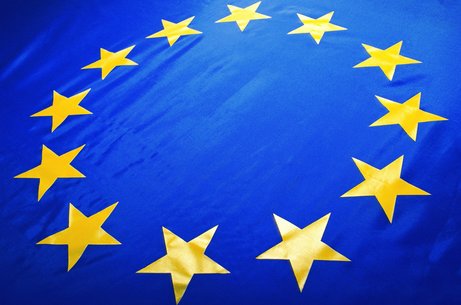
Philip Strik's research on foreign direct investment in the Single European Market coincided with changes brought in by the Treaty of Lisbon and the financial crash.
A year after Philip Strik started his PhD in European Law in 2008 the Treaty of Lisbon came into force. As a result the European Union has acquired exclusive competence to conclude treaties in the field of foreign direct investment with third countries such as the United States and China. Philip’s studies came right at the start of this significant policy development and have been useful in his subsequent career in the Dutch diplomatic service.
“The change has broadened the EU’s practice of treaty negotiations and has led to public debates about whether investor-State dispute settlement should be part of EU investment agreements,” says Philip.
“It was interesting to study the implications of the Treaty of Lisbon for the EU’s common commercial policy right from the beginning.” Moreover, his research on foreign direct investment in the Single European Market coincided with the economic and financial crisis. “Foreign direct investment was being looked at as one of the instruments of economic recovery,” says Philip. He recently reworked his PhD thesis into a book, which he published earlier this year.
Philip’s focus on European Law and the EU stems from an early interest in international relations, European philosophy and literature. His interest in literature began early and was triggered by studying classics. Philip grew up in Rotterdam, where he attended one of the oldest grammar schools in the Netherlands. From studying Latin and Greek an interest in philosophy followed naturally. “I became very interested in the history of ideas,” says Philip. “Delving deeper into the world of classical antiquity introduced me to philosophical concepts and I became fascinated by what distinguishes modernity from classical times.” He also became drawn to political thought and how this fitted into political developments in the Netherlands.
By the end of primary school he was one year ahead of his peers and in his secondary grammar school he also managed to skip a year, finishing at 16 instead of 18. Nevertheless, he does not describe himself as being particularly academic at the time. He was keen on sports and active in the European Youth Parliament. He says it was not until he started his undergraduate degrees at the University of Leiden that he really plugged into academia and adds that it didn’t make any difference that he was younger than his peers at university as he was used to being the youngest in his year.
Three degrees
Philip started off doing three degrees at the same time – Political Science, Philosophy and Italian. He chose Italian because of frequent family visits to Italy and also because he was drawn to its literature. Philip spent his third year in Paris at Sciences Po studying international relations and political philosophy. He graduated with a triple first, but says that work never interfered with his social life and his sporting activities. In Leiden he was a competitive rower and trained every day.
When he returned to Leiden he began a masters in European Law. His undergraduate studies in international relations had focused on European integration and he realised that to understand it more fully he needed to study law. He focused his legal studies on the law of the European Union’s external relations, looking at areas such as the EU’s common foreign and security policy, trade and development cooperation policy.
From Leiden he moved to Oxford where he did a masters in international relations and rowed in the first eight of his college before taking on responsibility for male rowing in his second year. His master’s thesis was on the EU’s common commercial policy.
Diplomacy
After his masters, Philip was keen to pursue his studies in European Law. “I had become more drawn to the legal aspects of European integration for the purpose of my doctorate,” he says. Cambridge offered the possibility of working with his supervisors and the attraction of the Gates Cambridge programme. “I was impressed by the focus on leadership and the commitment to improve the lives of others,” says Philip.
Philip finished his PhD in 2011 and worked for the European Commission in the Directorate General for Trade for six months, before entering the Netherlands diplomatic service. “The diplomatic service brings together all my interests – international relations, history and languages,” he says. He first spent two years in the legal service of the Dutch foreign ministry in The Hague, where he worked as a legal adviser in the EU law team.
“As a legal adviser you are very close to the policymaking process. Any issue of EU law could come to me, but my main focus was on EU external relations,” he states. In the legal service he was also able to work on some of the issues that he worked on for his PhD.
Since June this year he has been working as a diplomat at the Embassy of the Netherlands in Berlin. His work before had mostly centred on EU external relations, but his current role is less specifically EU-related. Among other things he monitors German foreign policy on issues relating to Africa, Latin America, Asia and development cooperation, for instance, developments in Mali and Libya and Ebola. “There are a lot of issues on which Germany and the Netherlands cooperate and as a diplomat you have a role in fostering that cooperation. It’s a great place to work,” he says. He will remain in Germany for two years.












